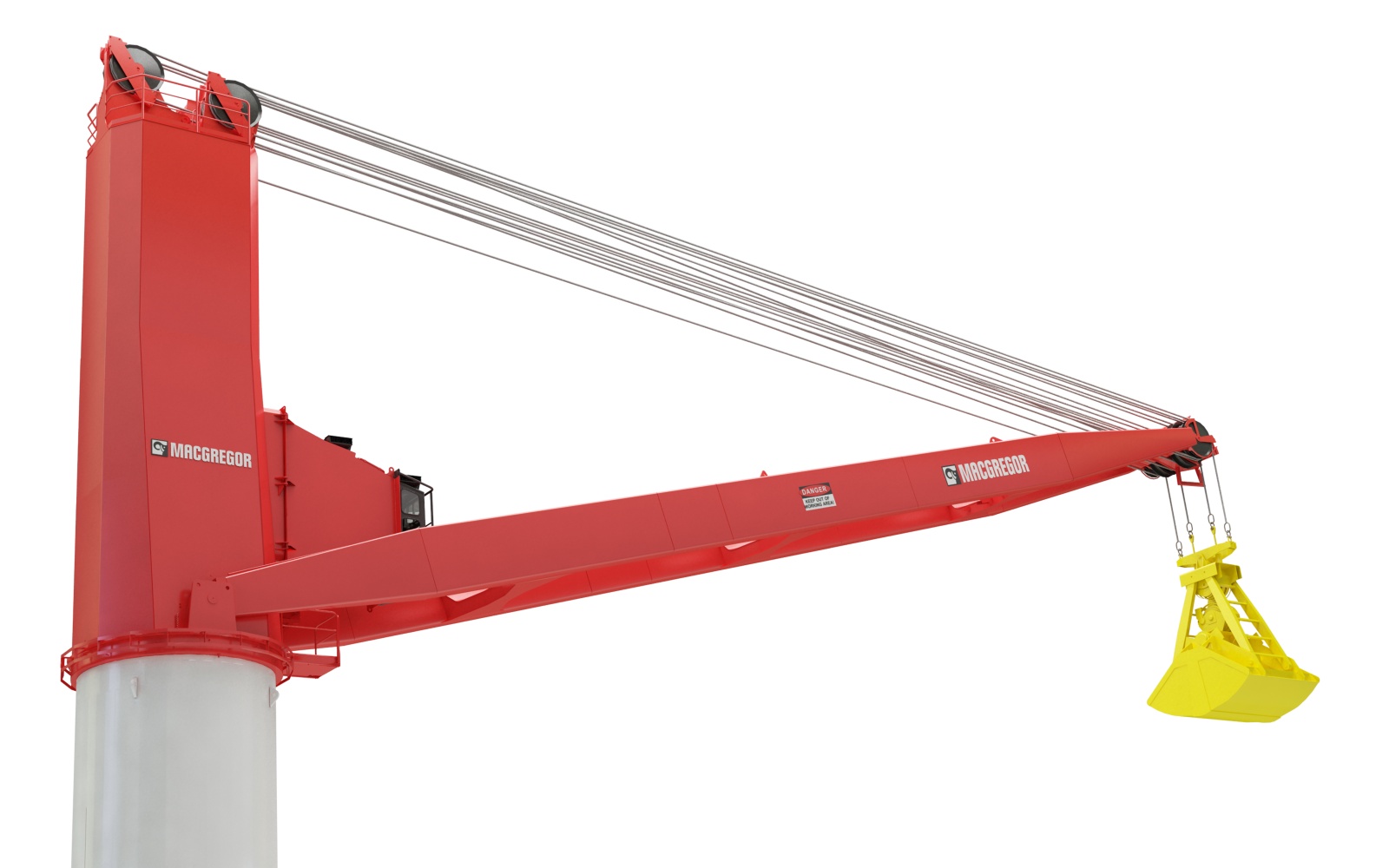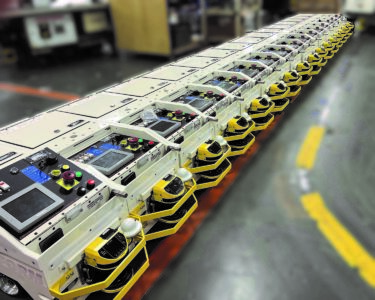MacGregor Transloading Crane
MacGregor has introduced the fully electrically driven heavy-duty transloading crane, with the type name “TCE”.
The new heavy-duty transloading crane is a result of combining decades of extensive customer experience in transloading operations.
The crane is based on the latest generation of the electric drive system with experience of more than 580 electric cranes delivered since 2007.
Launching the new TCE crane finally closes the gap in MacGregor´s electric crane portfolio, and enables offering the most efficient cranes up to SWL 50t in this demanding segment.
Lower emissions, increased safety and efficiency
Transloading cranes are usually used for heavy-duty work in areas with draft restrictions or limited infrastructure. Consequently, the cranes typically run 24/7 to ensure the most efficient handling of bulk material worldwide.
By electrifying the drive system, MacGregor’s new TCE crane brings efficiency to the next level. In combination with an energy storage system, to get the maximum benefit from the regenerated power, the crane consumes approximately 60% less energy, compared to a hydraulic drive system.
As a result, the CO2 emissions will be reduced by more than 5,500t within a typical lifecycle of a hydraulic crane. The amount of reduced emissions is comparable to 1,200 gasoline cars driving 20,000 km per year.*
The electrical drive increases cargo handling safety and efficiency through more precise control with superior operator comfort. Additionally, it increases the turnover capacity performance by more than 10% due to higher speed.

The crane is based on the latest generation of the electric drive system with experience of more than 580 electric cranes delivered since 2007.
Other major advantages of the new MacGregor TCE crane are potential savings in capital expenditure and lower maintenance costs without the need to change oil, filters and hoses.
The TCE crane can be connected to the OnWatch Scout condition-based monitoring and predictive maintenance service, with the option to include several automation functionalities such as Auto-Grip and Auto-Drive.
- *The emission factors for gasoline are from the calculations of “Greenhouse Gas Emissions from a Typical Passenger Vehicle” — fact sheet by Office of Transportation and Air Quality (EPA-420-F-18-008, March 2018)






